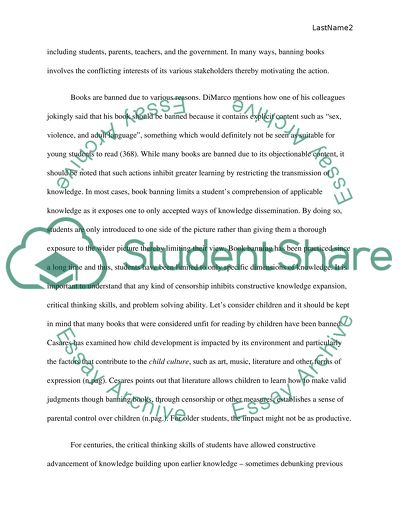Cite this document
(“Books Banning Research Paper Example | Topics and Well Written Essays - 1250 words”, n.d.)
Books Banning Research Paper Example | Topics and Well Written Essays - 1250 words. Retrieved from https://studentshare.org/health-sciences-medicine/1640036-books-banning
Books Banning Research Paper Example | Topics and Well Written Essays - 1250 words. Retrieved from https://studentshare.org/health-sciences-medicine/1640036-books-banning
(Books Banning Research Paper Example | Topics and Well Written Essays - 1250 Words)
Books Banning Research Paper Example | Topics and Well Written Essays - 1250 Words. https://studentshare.org/health-sciences-medicine/1640036-books-banning.
Books Banning Research Paper Example | Topics and Well Written Essays - 1250 Words. https://studentshare.org/health-sciences-medicine/1640036-books-banning.
“Books Banning Research Paper Example | Topics and Well Written Essays - 1250 Words”, n.d. https://studentshare.org/health-sciences-medicine/1640036-books-banning.


